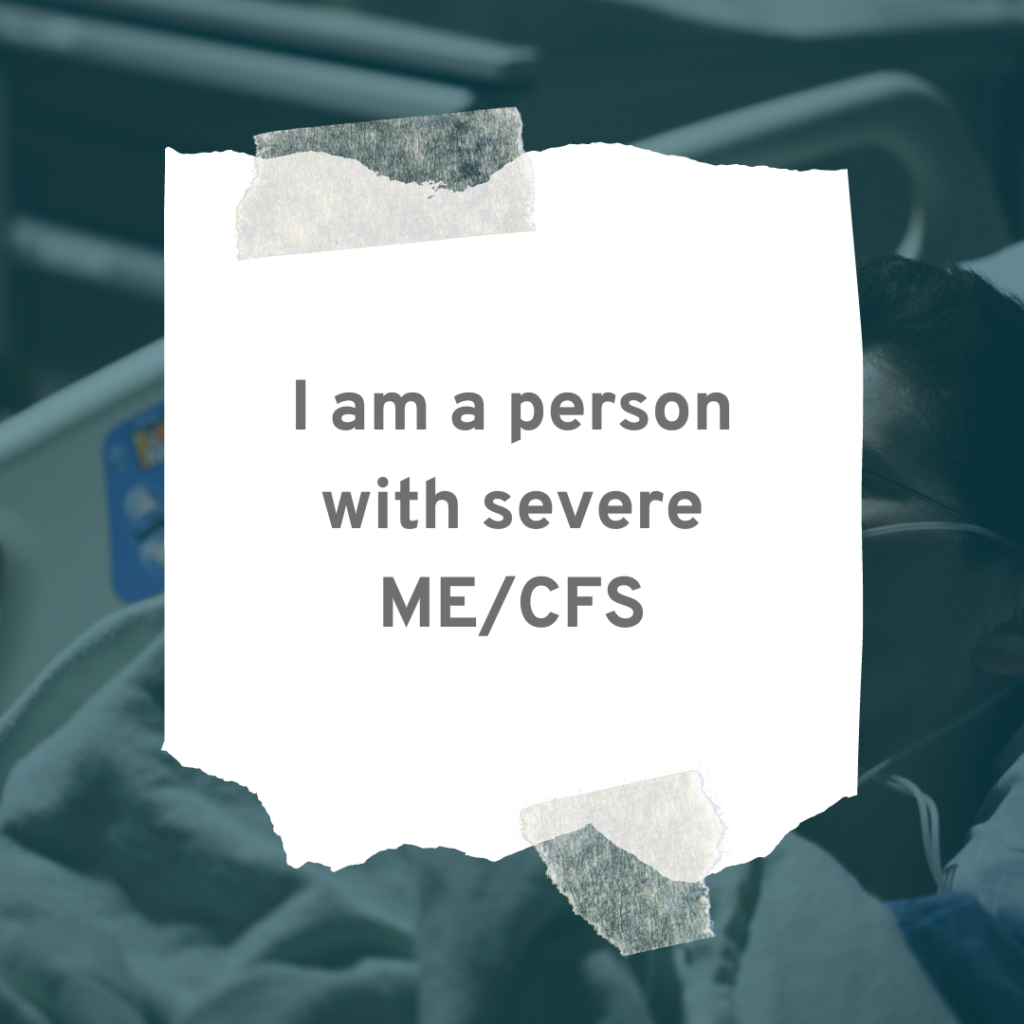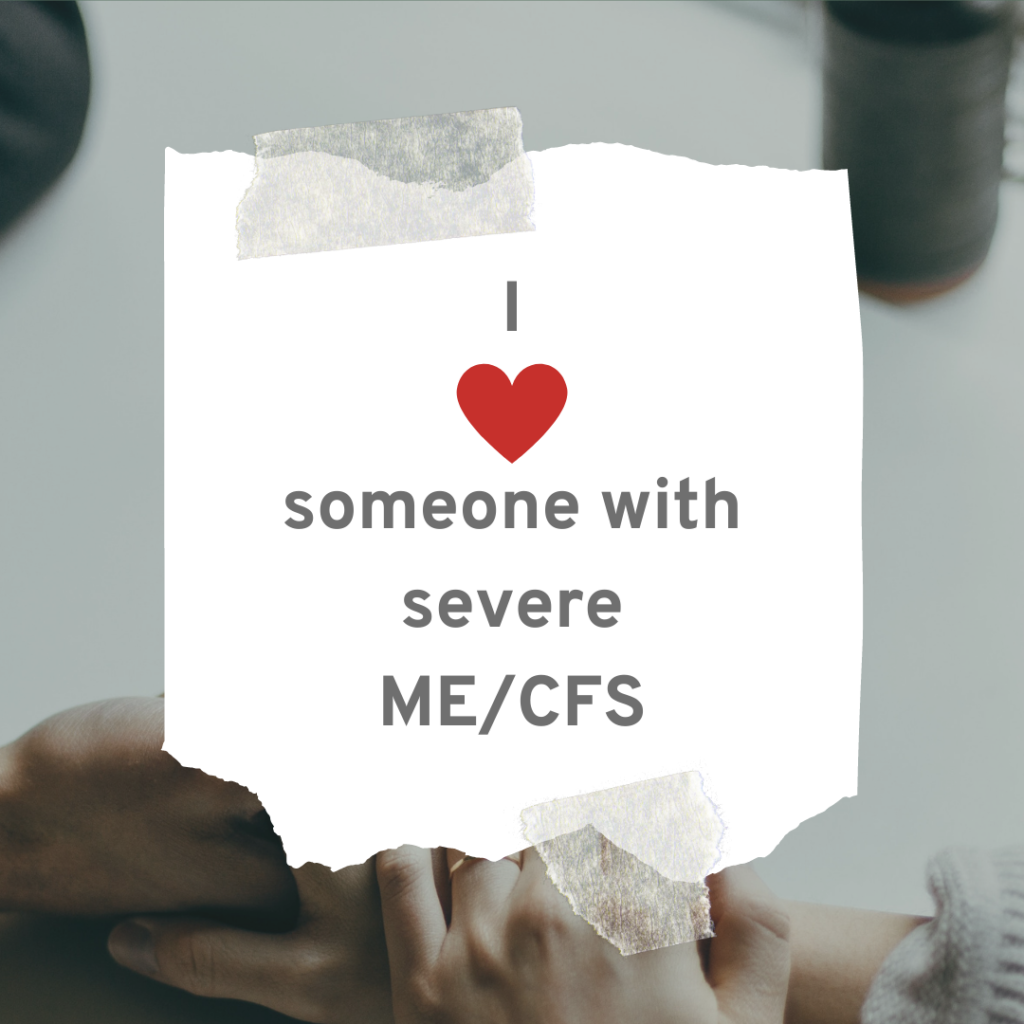Each year on August 8, Severe M.E. Day, we reflect on the tremendous toll this devastating disease takes on individuals suffering from severe ME/CFS symptoms and remember the lives of those we have lost. This is also an opportunity to spread awareness and advocate for research, support, and treatment for severe ME/CFS.
What is Severe M.E.?
People living with severe ME/CFS are often bed-bound and unable to perform everyday tasks without assistance — eating, showering, and even standing are made nearly impossible. Their symptoms can worsen from light, sound, and movement. Some need 24-hour care. These severe symptoms can prevent members of our community from accessing medical care and support and lead to isolation from family and friends.
Severe and very severe ME/CFS affect about 25% of people with ME/CFS, with the majority of patients being housebound or bed bound at some point during their illness.
To learn more about the lived experiences of individuals with severe ME/CFS, click here to read three cases published by the National Institutes of Health (NIH) National Library of Medicine.
To those who are suffering from severe ME/CFS, please know that you are not alone. We recognize and stand with you — those who have just been diagnosed, those whose symptoms have worsened, those who have been suffering for years and decades, and those who feel invisible because of their severe ME/CFS. We see you, we see your suffering, and we are fighting every day to get you your life back.
If you have a loved one with severe ME/CFS, let them know you are thinking of them today. We recognize and honor the work and dedication of caregivers and families — your ability to help improve the lives of your loved ones cannot be overstated. By listening to and respecting their experiences, giving energy where they cannot, and offering your assistance and care, you are providing hope. We thank you for your compassion.
Severe M.E. Explained:
This year, we had the unique opportunity to collaborate with disability and LGBTQ advocate Jessica Kellgren-Fozard to create an informational video about severe ME/CFS. In addition to charismatically and accurately characterizing the disease, Jessica also shared the video to her YouTube channel with nearly 1 million subscribers.
Jessica Kellgren-Fozard is a vintage icon and leading advocate for LGBTQ+ and disability rights. Jessica’s unique sense of personal style, coupled with her blend of creativity and intellect, has amassed her a legion of fans. Jessica’s unique and humorous take on life and forging on when the going gets tough has seen her lauded by DIVA magazine as a “Rising Star” of the LGBTQ+ community, has won her awards including “Vlogger of the Year” from Blogosphere magazine and has seen her work with huge brands and channels such as MTV, BBCThree, BBC Radio 1 and ITV.
Ways to Get Involved:
- Join the You + ME Registry
By helping individuals with severe ME/CFS provide their data and health history to the You + ME Registry, we can ensure that EVERYONE, no matter what severity, can benefit from the big data revolution. The Registry will give us a more complete understanding of the disease and drive us toward effective treatments.
Already, the You + ME Registry is providing key insights into the experiences of people with severe ME/CFS. As of August 2021, 33% of the nearly 4,000 individuals with ME/CFS enrolled in the Registry report severe ME/CFS symptoms. Click here for more information on the latest data on Severe M.E. in our You + M.E. Registry.
Patient-provided data allows researchers to gain an understanding of why some people progress to have more severe disease while others do not by identifying factors that may contribute to a worsening of disease or, on the other hand, may prevent disease progression. When patients provide data over time, researchers can start to untangle the course of disease and recognize where interventions would be most effective.
To help someone with ME/CFS contribute their health data to the You + ME Registry, click here.
- Share Your Stories to Humans of M.E.
Sharing personal experiences is critical to increasing understanding of severe ME/CFS — individual disease journeys are complex and varied. No two experiences with ME/CFS are the same, and in order to truly understand and begin finding a cure for this disease, we must ensure that your experiences are heard. Our Humans of M.E. project is dedicated to collecting and sharing these stories.
Our Humans of M.E. story archive includes “Caregivers of M.E.” category to amplify your unique and compelling stories, and recognize the tremendous role caregivers play in the lives of people with ME/CFS.
To submit your story or help someone with severe ME/CFS share their story with Humans of M.E., click here.
- Find Resources Through Support Groups
Living with severe ME/CFS — as a patient, caregiver, or loved one — can be an isolating and heartbreaking experience, but you don’t have to do it alone. Support groups and resources, such as those provided by the Center for Chronic Illness, aim to promote well-being for those impacted by chronic illness through support and education.
Other groups, such as the ME/CFS Phone Support Group, are volunteer-led and provide peer-to-peer support and social interactions to those affected by ME/CFS. You can find additional tools, including resources for caregiver burnout, on Solve M.E.’s resources for people with M.E. and caregivers webpage.
- Read About the Work of Caroline Kingdon, RN, MSc
Caroline, a research nurse for CureME, is working to ensure that people with severe ME/CFS are represented in research. Learn more here. - Increase Awareness of Severe ME/CFS by Sharing To Social
Download and post the applicable graphics below on your social media channels to help the world understand how many lives are impacted by severe ME/CFS and display the strength in our numbers.


Our mission at Solve M.E. is to make ME/CFS widely understood, diagnosable, and treatable. We thank you for your trust and continued partnership as we work towards a world free of ME/CFS.

